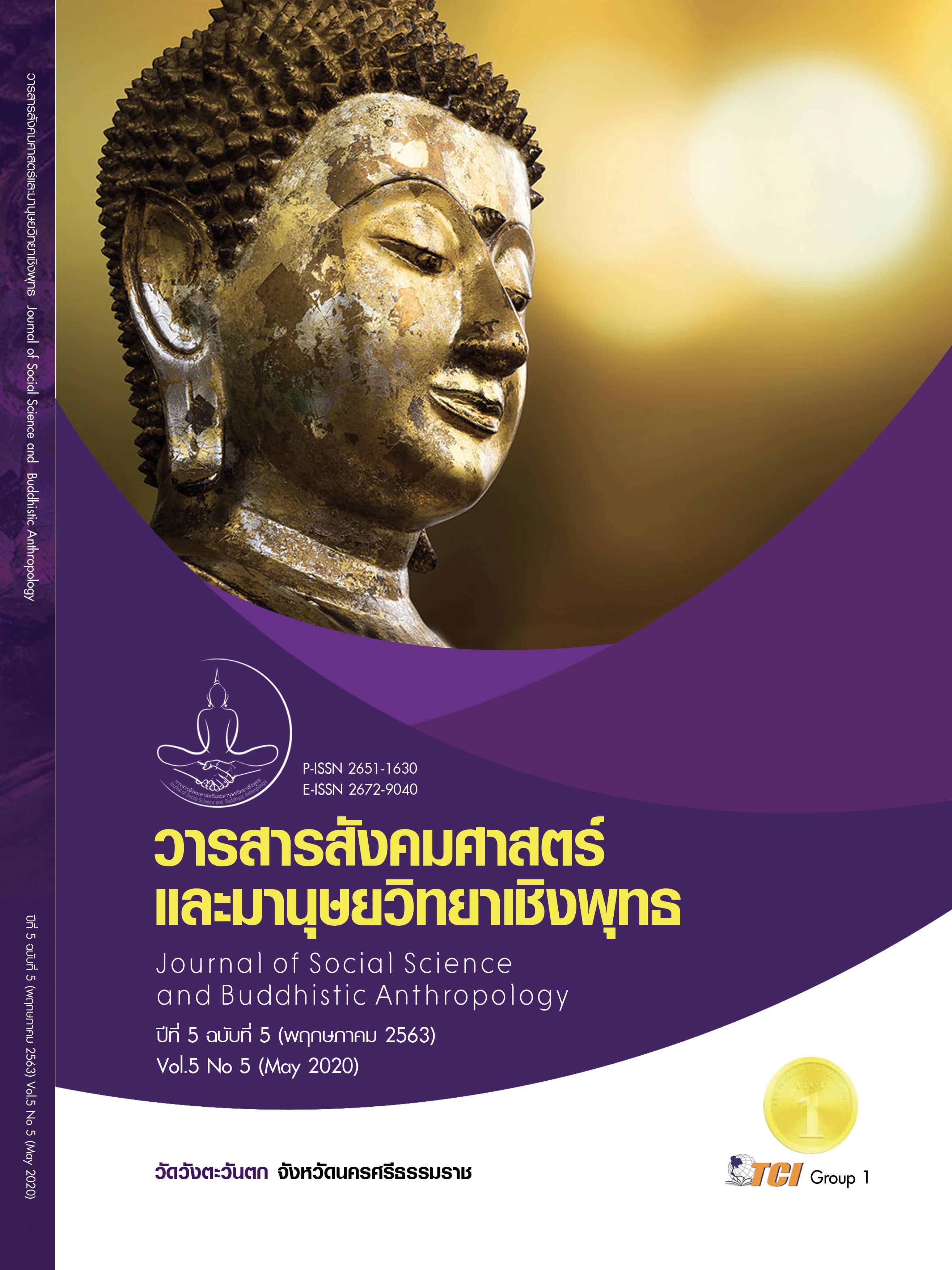TEACHER EMPOWERMENT MODEL FOR PRIMARY SCHOOLS UNDER KHON KAEN PRIMARY EDUCATION SERVICE AREA OFFICE
Keywords:
Model, Teacher Empowerment, Teacher, Khon Kaen ProvinceAbstract
The objectives of this article were: 1) to study of teacher empowerment, the composition of Primary School Under Khonkaen Primary Educational Service Area Office. 2) to study current conditions and the desirable condition of teacher empowerment, of Primary School Under Khonkaen Primary Educational Service Area Office. 3) to Developing teacher empowerment model , of Primary School Under Khonkaen Primary Educational Service Area Office. The mixed-methods research was conducted, using sample group of teachers and educaijonal presonnel with a total of 325 persons through stratified random sampling. The instruments used were interview form, questionnaire, assessment form for evaluation of the appropriateness, feasibility and utility of the strategies. Statistics used were Mean, Standard Deviation (SD.), Item Objective Congruence Index (IOC) and PNI modified. The research findings were follows. 1) The composition of teacher empowerment, of Primary School Under Khonkaen Primary Educational Service Area Office. Composition with 6 aspects are. 1.1) Create participation in teacher decisions. 1.2) Build trust and good relationships. 1.3) Give confidence and give an opportunity to work. 1.4) Give an opportunity to show responsibility and vision of work. 1.5) Promoting strong leadership. And 1.6) Create an atmosphere of independent work environmen. 2) The current conditions and the desirable condition of teacher empowerment, of Primary School Under Khonkaen Primary Educational Service Area Office. in overall, it is modulate level. As for the desirable condition, all are at the highest level. 3) The Developing teacher empowerment model , of Primary School Under Khonkaen Primary Educational Service Area Office. 3.1) Develop, strengthen the training process for leadership development with teachers. 3.2) Enhance the level of good relations in the organization. 3.3) Create a positive attitude and atmosphere in the organization. And 3.4) Creating an atmosphere of learning that empowers.
References
กระทรวงศึกษาธิการ. (2553). พระราชบัญญัติการศึกษาแห่งชาติ พุทธศักราช 2553 (ฉบับที่ 3). กรุงเทพมหานคร: สยามสปอรต์ ซินดิเคท จำกัด.
กุหลาบ บึงไสย์. (2553). การเสริมสร้างพลังอำนาจครูในโรงเรียนสังกัดสำนักงานเขตพื้นที่การศึกษาประถมศึกษาหนองบัวลำภู เขต 2. ใน วิทยานิพนธ์ศึกษาศาสตรมหาบัณฑิต สาขาวิชาการบริหารการศึกษา. มหาวิทยาลัยราชภัฎเลย.
เชิดศักดิ์ ศรีสง่าชัย. (2553). ข้อเสนอแนะเชิงนโยบายการบริหารแลการจัดการศึกษาโรงเรียนขนาดเล็กในสถานศึกษาสังกัดสำนักงานเขตพื้นที่การศึกษาประถมศึกษาขอนแก่น เขต 2. ใน วิทยานิพนธ์ปรัชญาดุษฎีบัณฑิต สาขาวิชาการบริหารการศึกษา. มหาวิทยาลัยราชภัฎเลย.
ยุวธิดา ชาปัญญา. (2554). การเสริมสร้างพลังอำนาจครูโรงเรียนประถมศึกษา: การวิจัยทฤษฎีฐานราก. ใน ดุษฎีนิพนธ์ปรัชญาดุษฎีบัณฑิต สาขาการบริหารการศึกษา. มหาวิทยาลัยขอนแก่น.
สมจิต สงสาร. (2552). การพัฒนาตัวแบบความสัมพันธ์โครงสร้างเชิงเส้นของปัจจัยที่มีอิทธิพลต่อการเสริมสร้างพลังอำนาจการทำงานที่มีประสิทธิผลของครู. ใน รายงานการวิจัย. มหาวิทยาลัยขอนแก่น.
สมเดช สีแสง. (2550). การพัฒนารูปแบบการบริหารจัดการที่ส่งเสริมคุณภาพการศึกษาโรงเรียนขนาดเล็กสํานักงานเขตพื้นที่การศึกษานครสวรรค์เขต 3. นครสวรรค์: ริมปิงการพิมพ์.
สมวรรณ เทพทอง. (2556). ปัจจัยเชิงสาเหตุที่มีอิทธิพลต่อประสิทธิผลการเสริมสร้างพลังอำนาจครูสังกัดสำนักงานเขตพื้นที่การศึกษาประถมศึกษาขอนแก่น เขต 1. ใน วิทยานิพนธ์ปรัชญาดุษฎีบัณฑิต สาขาการบริหารการศึกษา. มหาวิทยาลัยภาคตะวันออกเฉียงเหนือ.
สำนักงานคณะกรรมการพัฒนาการเศรษฐกิจและสังคมแห่งชาติ. (2560). แผนพัฒนาเศรษฐกิจและสังคมแห่งชาติ ฉบับที่ 12. กรุงเทพมหานคร: สำนักงานคณะกรรมการพัฒนาการเศรษฐกิจและสังคมแห่งชาติ.
สุเมธ งามกนก. (2549). หลักสูตรฝึกอบรมเพิ่มอำนาจในการทำงานของเจ้าหน้าที่วิเคราะห์นโยบายและแผน. ใน ดุษฎีนิพนธ์การศึกษาดุษฎีบัณฑิต สาขาการบริหารการศึกษา. มหาวิทยาลัยศรีนครินทรวิโรฒ.
Clutterbuck, D. & Kernaghan, S. (1995). The power of empowerment. London: Kogan Press.
Freire, P. (1970). Pedagogy of The Oppressed. New York: The Seabury Press.
Honold, L. (1997). A reviw of the lieterature on employee empowerment. Empowerment in the Organization, 5(4), 202-212.
Muchinsky, P. M. (1993). Psychology to work: An introduction to industrial and organization Psychology. Califirnia: Publishing Co.
OECD. (2016). PISA 2015 Results (Volume I): Excellence and Equity in Education. Paris: OECD Publishing.
Zimmerman, M. A. & Rappaport, J. (1988). American Journal of Community Psychology. American Journal of Community Psychology, 16(1), 725–750.









